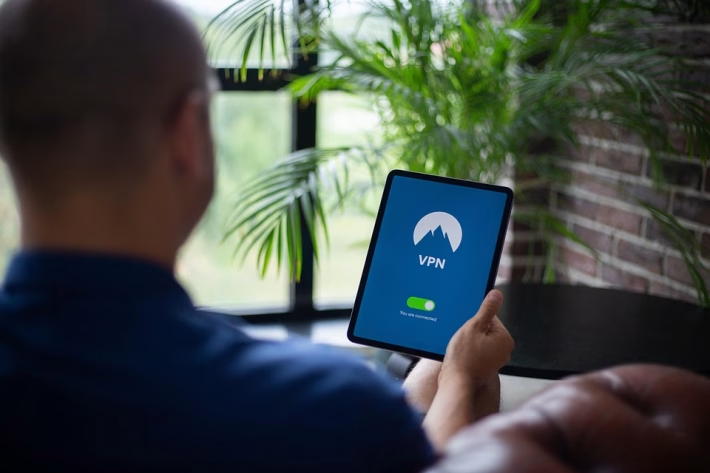2025’s Most Trusted Antivirus Solutions: A Comprehensive Review

Introduction – Why Security and Privacy Matter Today
In 2025, the digital landscape has become increasingly intricate, and with it, the stakes for maintaining robust security and privacy have never been higher. As businesses and individuals integrate more technology into their daily lives, the threat landscape has expanded exponentially. Cyber threats are no longer the concern of merely tech-savvy individuals; they pose real risks to everyone. With the rise in remote work, enhanced sharing of sensitive data, and the pervasiveness of connected devices, ensuring comprehensive cybersecurity measures is paramount.
The ramifications of inadequate security can be detrimental. From financial loss and reputational damage to legal repercussions and emotional distress, the effects of a cyber breach can linger long after the incident itself. Therefore, understanding the current risks and adopting effective cybersecurity measures is not just prudent—it is essential.
Overview – The Risks Businesses and Individuals Face
Both businesses and individuals face various cybersecurity threats, including:
- Cyberattacks: From ransomware to phishing, malicious actors are constantly evolving their tactics to compromise systems and extract sensitive information.
- Data Leaks: Unintentional leaks can occur due to human error, inadequate security policies, or targeted attacks, leading to unauthorized access to personal or financial information.
- Identity Theft: Cybercriminals exploit stolen information to impersonate individuals, leading to fraudulent activities that can take years to resolve.
These threats underscore the necessity for robust cybersecurity measures across all sectors.
Best Tools – Top Selections for 2025
Navigating the ocean of cybersecurity tools can be overwhelming. Here are some of the best tools available in 2025, carefully selected based on their features, pricing, and user feedback.
1. Norton Antivirus 2025
- Features: Real-time threat protection, malware scanning, VPN, and dark web monitoring.
- Pricing: Starting at $39.99/year for a single device.
- Pros: Comprehensive malware protection, user-friendly interface.
- Cons: Can slow down older devices.
2. ExpressVPN
- Features: AES-256 encryption, perfect forward secrecy, and no-logs policy.
- Pricing: $8.32/month when billed annually.
- Pros: Fast speeds, extensive server network.
- Cons: Higher cost compared to some competitors.
3. 1Password
- Features: Secure password generation, biometric logins, and emergency access.
- Pricing: Starting at $2.99/month for individuals.
- Pros: Excellent security features, user-friendly layout.
- Cons: Subscription model may be off-putting to some.
4. Bitwarden
- Features: Open-source password manager with end-to-end encryption and self-hosting options.
- Pricing: Free for basic use; premium version available for $10/year.
- Pros: Budget-friendly, highly customizable.
- Cons: User interface could be improved for beginners.
5. Tresorit
- Features: End-to-end encrypted cloud storage, zero-knowledge policy.
- Pricing: $12.50/month for individual plans.
- Pros: High-level security protocols, GDPR compliant.
- Cons: Limited storage with basic plans.
6. Malwarebytes
- Features: Malware removal, web protection, and a privacy audit tool.
- Pricing: $39.99/year for premium version.
- Pros: Effective for removing existing malware.
- Cons: Less effective against zero-day threats.
7. DuckDuckGo
- Features: Privacy-focused web search engine; no tracking cookies.
- Pricing: Free to use.
- Pros: No ads, robust privacy.
- Cons: Search results may be less comprehensive.
8. LastPass
- Features: Password storage, autofill, and security challenge features.
- Pricing: Free for basic; Premium version at $3/month.
- Pros: Easy to use across devices.
- Cons: Recent security breach raised concerns.
9. Cisco Umbrella
- Features: Cloud-based cybersecurity, threat intelligence, and web filtering.
- Pricing: Custom pricing based on business needs.
- Pros: Scalable solution, strong for businesses.
- Cons: Complexity may be overwhelming for smaller organizations.
10. Kaspersky Security Cloud
- Features: Adaptive security, VPN, and parental controls.
- Pricing: Starting at $59.99/year for multiple devices.
- Pros: High malware detection rates.
- Cons: Occasional false positives.
Best Practices – Step-by-Step Methods to Improve Security and Privacy
Implementing the right tools is just one part of a comprehensive cybersecurity strategy. Here are steps to improve your security and privacy:
Step 1: Use Strong, Unique Passwords
- Employ a password manager like 1Password or Bitwarden to generate and store complex passwords.
Step 2: Enable Two-Factor Authentication (2FA)
- Always activate 2FA for all accounts, providing an additional layer of security beyond just passwords.
Step 3: Regularly Update Software
- Install updates for your operating system and applications promptly to protect against vulnerabilities.
Step 4: Conduct Regular Security Audits
- Periodically review security settings on devices and software to ensure they align with best practices.
Step 5: Secure Your Network
- Utilize a reputable VPN, such as ExpressVPN, to encrypt your internet connection and protect your data.
Step 6: Educate Users and Employees
- Conduct training sessions for employees on recognizing phishing attempts and other cybersecurity threats.
Industry Trends – Insights into Current or Upcoming Cybersecurity Trends in 2025
1. Zero Trust Security Model
As organizations adopt cloud technologies, the zero trust model—where no one inside or outside the organization is trusted by default—is gaining traction. Ensuring rigorous identity verification and least-privilege access will be critical.
2. Artificial Intelligence in Cybersecurity
AI and machine learning technologies are increasingly being used to detect anomalies and respond to threats faster than traditional methods.
3. Rise of Secure Remote Work Solutions
With remote work here to stay, businesses are investing heavily in secure collaboration tools and data protection measures to safeguard their systems.
4. Increased Regulation and Compliance Needs
Ongoing regulations, such as GDPR and CCPA, require organizations to prioritize data protection, leading to larger investments in cybersecurity solutions.
Case Studies / Examples – Real-World Security Breaches and Lessons Learned
Case Study 1: Colonial Pipeline Ransomware Attack
In May 2021, the Colonial Pipeline suffered a ransomware attack that paralyzed fuel supplies on the U.S. East Coast. The incident underscored the critical need for robust cybersecurity measures and incident response protocols.
Case Study 2: Facebook Data Leak
In 2021, data from over 500 million Facebook accounts was exposed online. The breach highlighted the importance of secure data handling and transparency regarding user data security practices.
Case Study 3: SolarWinds Cyberattack
The SolarWinds breach involved sophisticated supply chain attacks that compromised several U.S. government agencies. This attack showcased the need for comprehensive threat detection strategies across multiple layers of defense.
Comparisons – How Leading Tools Differ in Protection, Pricing, and Usability
When deciding on cybersecurity software, it’s important to compare features, pricing, and usability:
-
Norton Antivirus vs. Kaspersky: Both provide excellent malware detection, but Kaspersky offers additional features like VPN and parental controls for an all-in-one solution.
-
Bitwarden vs. LastPass: Bitwarden is more affordable and open-source, making it ideal for tech-savvy individuals, whereas LastPass shines in user-friendliness.
- ExpressVPN vs. Surfshark: ExpressVPN is known for speed and reliability, while Surfshark provides more simultaneous connections at a lower price.
Pros & Cons – Balanced Analysis for Readers to Make Informed Decisions
Pros
- Enhanced Security: Implementing multiple cybersecurity measures reduces the likelihood of breaches.
- Peace of Mind: Knowing that you have robust protection fosters confidence in online activities.
- Regulatory Compliance: Investing in cybersecurity can help businesses meet regulatory requirements, avoiding penalties.
Cons
- Cost: Quality cybersecurity tools can be costly, especially for small businesses.
- Complexity: The range of options may confuse individuals and organizations, leading to misguided choices.
- Overconfidence: Relying solely on tools without user education can result in complacency and increased vulnerability.
FAQs
1. What is the best antivirus software for 2025?
Norton Antivirus and Kaspersky Security Cloud are among the top contenders due to their comprehensive features and high malware detection rates.
2. Which VPN is safest?
ExpressVPN is widely regarded as one of the safest VPN options in 2025 due to its no-logs policy and robust encryption methods.
3. How to secure business data?
Implement a zero trust security model, utilize a password manager, provide employee training, and regularly back up important data.
4. Is free antivirus effective?
Free antivirus options can provide basic protection, but premium software typically offers advanced features and better overall security.
5. Do I need a VPN for home use?
While not mandatory, a VPN can greatly enhance your online privacy and security by encrypting your internet connection.
Conclusion – Final Thoughts with Practical Advice and Clear Recommendations
As we progress through 2025, the importance of cybersecurity cannot be overstated. With evolving threats and growing digital footprints, both individuals and businesses must prioritize investing in quality cybersecurity tools and adopt best practices.
In an increasingly connected world, staying informed about the latest trends and potential risks is crucial. Utilize recommended tools like Norton, ExpressVPN, and 1Password and follow security best practices to bolster your defenses. Remember, the cost of prevention is always less than the fees incurred during a breach. Equip yourself today to safeguard your digital life for tomorrow.
🚀 Try Ancoia for FREE today and experience the power of business automation!
🔗 Sign up now and get a 7-day free trial



